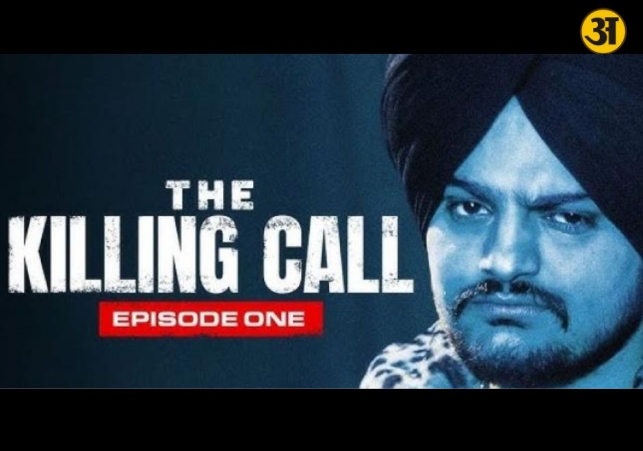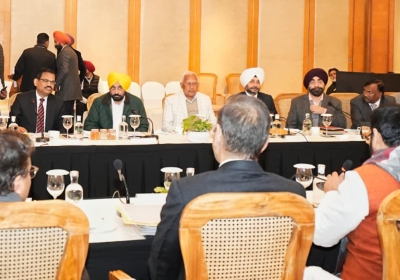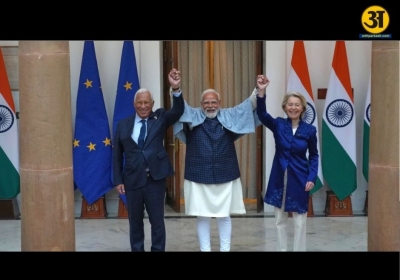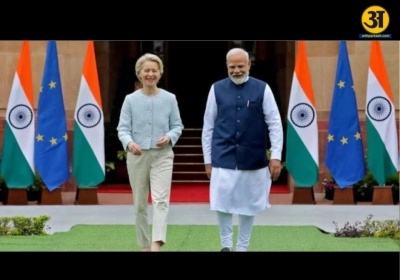
Mansa Court asks BBC to respond on Moose Wala Documentary by June 16
Moose Wala Documentary: Mansa Court directs BBC to file reply on June 16
- By Gurmehar --
- Friday, 13 Jun, 2025
A court in Mansa district has asked the BBC World Service and two other people to respond by June 16 in a legal case related to a documentary about Sidhu Moose Wala. The Punjabi singer, whose real name was Shubhdeep Singh Sidhu, was murdered on May 29, 2022, in the Jawaharke area of Mansa district. He was 28 years old and had a large fan following in India and abroad. He was also active in politics.
The court order was issued on Thursday by Rajinder Singh Nagpal, who is the civil judge (senior division). The case was filed after the BBC released a two-part documentary titled "The Killing Call" on YouTube on June 11, the day Moose Wala would have turned 32. His father, Balkaur Singh, had earlier requested the court to stop the documentary’s release, but it went ahead despite the objection.
The court has now directed BBC World Service, investigative journalist Ishleen Kaur, and producer Ankur Jain to submit their written replies by Monday, June 16. The next hearing is scheduled for that date. Balkaur Singh’s lawyer, Satinder Pal Singh, said the other side had asked the court to delay the case until after the summer holidays. However, the court agreed with Balkaur Singh's request for an early hearing and refused to postpone it.
Controversy over the documentary
The BBC documentary has created a big stir. The two-part film, called “The Killing Call,” talks about the events surrounding Moose Wala’s death. According to the filmmakers, the documentary aims to explore the crime and the larger issues around gang violence, music, and politics in Punjab. It also includes interviews, personal accounts, and commentary on the case. But the family of Sidhu Moose Wala believes that it contains “objectionable” content and violates their rights while the trial in his murder case is still going on.
Originally, the BBC had planned to release the documentary at a public event in Mumbai. But after growing backlash and legal pressure, they decided to upload it on YouTube instead. The timing of the release—on Moose Wala's birth anniversary—added to the anger of his family and fans.
Balkaur Singh said the BBC did not have his permission to make or release the documentary. He sent a legal notice to the broadcaster and also filed a complaint with the Maharashtra Police, claiming that the documentary includes personal stories and unverified claims that could impact the ongoing trial.
He told the court that releasing such content without the consent of the family is both unethical and illegal. His lawyer said the family wants to make sure that nothing interferes with the investigation and court process. He also argued that the documentary may influence public opinion in a way that harms justice.
After hearing arguments on Thursday, Judge Rajinder Singh Nagpal said that the matter needed quick attention. He ordered the BBC and the other two named people to present their responses by June 16. The court has not yet made any decision about whether the documentary will be taken down or banned.
This legal case has brought attention to larger questions about media freedom, family rights, and the role of journalism in ongoing legal cases. Some people say the BBC has the right to report and explore issues. Others believe that the family’s consent should have been taken, especially when emotions are still raw and the trial is not over.
Legal experts say that while freedom of the press is protected, courts can stop content if it is likely to influence trials or cause emotional distress to victims' families. Whether that will happen in this case is something the court will decide after hearing all sides.
Background on the murder
Sidhu Moose Wala was shot dead on May 29, 2022, in broad daylight near his native village Musa, in Mansa district. He was driving a black Mahindra Thar SUV when gunmen attacked him. The killing shocked the entire nation. His songs, which often focused on Punjabi pride, rural life, and social issues, had made him a cultural icon.
After his death, the Punjab Police launched a major investigation. They said the killing was part of a gang rivalry and that several gang members were involved. Many suspects were arrested across different states. The investigation is still going on, and the main trial is yet to be completed.
Moose Wala’s murder also led to debates about the rise of gang culture in Punjab, the need for better policing, and the role of social media in glorifying violence. His fans around the world demanded justice and have continued to remember him through tributes, murals, and online posts.
ALSO READ: Fasttrack portal for investors to launch today in Punjab
The BBC documentary tries to explore these issues. It claims to tell the larger story of crime and justice in Punjab, using Moose Wala’s murder as a central example. But the family says the timing and content of the documentary are insensitive and harmful.
The court will now wait for the written replies from the BBC and the two others. After that, it will hear arguments and decide if the documentary should be stopped, edited, or allowed to remain online. If the family is not happy with the decision, they may take the case to a higher court.
This is not the first time families of crime victims have raised objections to documentaries and shows. In many countries, courts have stepped in when films or series affected ongoing trials or caused pain to those involved. In India, legal restrictions on such content are still developing, and each case is judged on its own facts.
For now, the Moose Wala family is hoping that the court will understand their pain and stop what they see as a misuse of their son’s name. Meanwhile, the BBC has not made any official public statement about the court case. The documentary is still available on YouTube and has already received lakhs of views.
This case will likely draw national attention in the coming days as people wait to see what the court decides.





